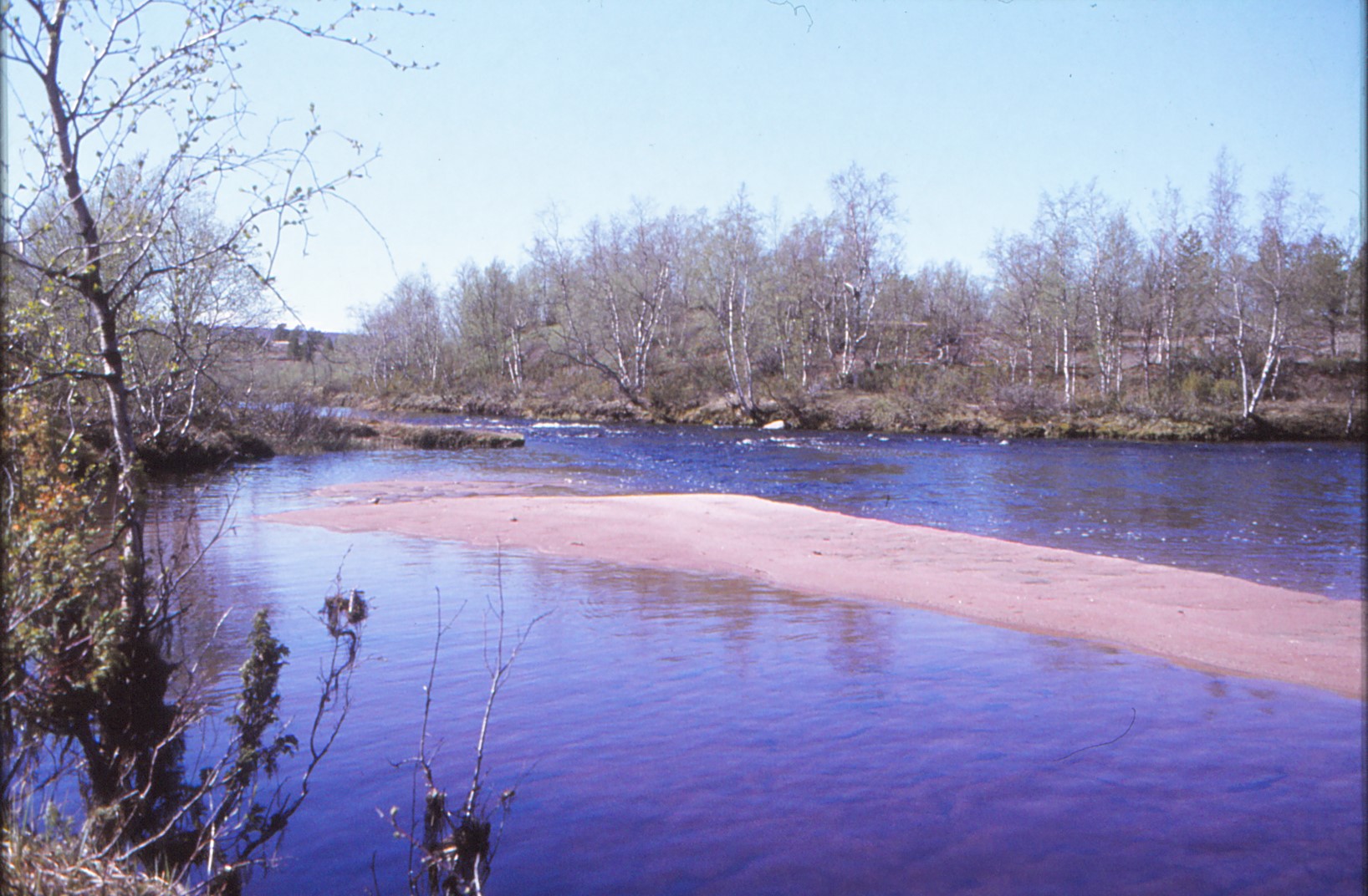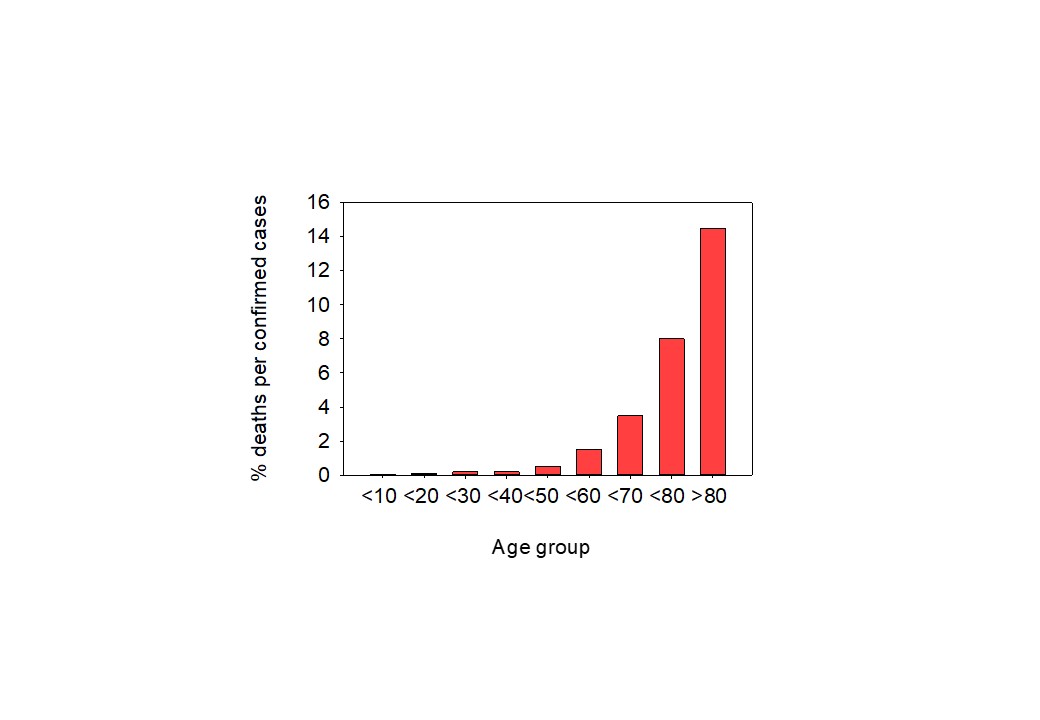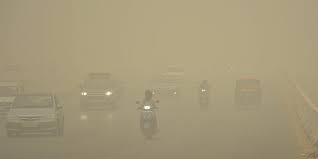After the coronavirus: back to the old ways or a new beginning?Perjantai 3.4.2020 klo 15.19 - Mikko Nikinmaa One of the very few positive things that have happened in recent months is how the air quality throughout the world has improved. Naturally the reason for that has been the Coronavirus pandemic, which has decreased traffic and industrial activity, whereby energy production using fossil fuels has markedly decreased. Since it is estimated that about 20000 people per day die as a consequence of air pollution, the decrease saves many human lives, so that the net effect of Covid-19 pandemic is not as devastating as solely the disease mortalities indicate. However, some day the pandemic is over, and then the “forced” improvement of air quality and climate change-mitigating actions are also over. Then there are two alternatives: we can either return to the old ways or try to shape our actions towards sustainable future. Earlier, the crises have virtually always been followed by increased economic activity as compared the situation before the crisis. If we choose this path, the improvement of air quality just lasts for a fleeting moment. Traffic using fossil fuels increases above last year’s level and fossil fuel-based energy production (using both oil and coal) increases. As a consequence, death bells chime to more than 7000000 people per year because of air pollution and climate change accelerates. Alternatively, we may want to retain the improvements of air quality and choose a more sustainable future. In the best case, the era of coal and oil comes to the end sooner than expected. The price of raw oil is presently at all time low. If the political leaders are rational, they start collecting so high taxes on oil products that their consumer prices do not decrease, and use taxes collected in this way to compensate for economic losses incurred during the Coronavirus pandemic. Since the low oil price would then not give an incentive for using oil as a fuel, the direction towards fossil fuel-free energy production would continue without slowing down. It could also be speeded up by giving t The surprisingly smooth conversion to distant working has given us a couple of things by which we can decrease both work traffic and air traffic. Distant working can be utilized much more and in many more jobs than previously thought. All the days at home decrease fuel consumption: both saving the employee’s costs and decreasing carbon dioxide emissions (and decreasing oil industry’s profits, which is a good thing). Also, many international meetings can be arranged without gathering people to one place. This decreases air travel, and both saves employer’s expenses and combats climate change. Note that although much of the work can be done from home and many meetings can be held as video conferences, it is imperative that social contacts be maintained both at working places and at international communities. Thus, in both cases, personal contacts must not be abolished, only reduced. Although reducing traffic and increasing fossil-free energy production are only small steps in our way to sustainable society, the steps could be taken when we are going forward from Covid-19 pandemic.
|
|
Kommentoi kirjoitusta. Avainsanat: air pollution, climate change, fossil fuels |
It is not all negative with CoronavirusPerjantai 13.3.2020 klo 16.01 - Mikko Nikinmaa The major argument against climate actions has been that such actions cannot be done, as they are too costly. This argument has now been proven wrong. With the spread of coronavirus, most nations have taken measures, which would have been thought to be impossible a month ago. The reason for this is that we are encountering a new threat, consequently with no financial lobby groups, which can be transmitted to anyone. Further, the coronavirus infection can affect rich and poor alike. In the media only the spreading of the virus has been discussed, and it has been said that it can be deadly. However, the danger to different age groups has seldom been given. This is given in the enclosed figure: from the figure it is clear that for people in working age, the mortality is marginal. Probably it is related to the percentage of young people with severe lung problems. The total coronavirus mortality in the world up to today (Friday, March 13) is maximally similar as is caused every day by air pollution. It is notable that the mortality to coronavirus infection has been higher in China with severe air pollution than in Northern Europe with clean air, for example in Sweden, out of approximately 500 cases, on In addition to decreased energy production for industry, air traffic and car traffic have markedly decreased. Both have been the aim of climate activists, but without coronavirus bans could hardly have been possible. Distance work when possible helps reducing fuel consumption. The same is true for meetings arranged electronically. Because of problems with component suppliers in different parts of the world (production bans occurring at different times), supply chains are shortened and product components are stored to greater extent than earlier, also leading to decreased transport. Thus, many of the consequences are in the same direction as what is beneficial for combatting climate change. As one can expect that the coronavirus measures are finished some day, the situation may be similar to aftermaths of other major crises. It has then been typical that innovations increase. Hopefully, any new innovation is sustainable. Also, hopefully one does not return back to situation before the restrictions, but continues the environmentally friendly solutions, where possible. In that way, one could say that Coronavirus Crisis has also had positive effects, especially for combatting climate change. |
|
Kommentoi kirjoitusta. Avainsanat: climate change, air pollution, coronavirus mortality |
Like the Dance Band on the Titanic - Trump Government's Environmental ActionsTiistai 5.11.2019 klo 15.50 - Mikko Nikinmaa In the news today one heard that Trump government had officially left the Paris Climate Accord. He had said this already when becoming president, but the accord stated that one can leave it first three years after signing, which is now. The reason for leaving the accord is, according to Trump, that it causes economic problems, and does not treat USA economically fairly. Similar reasoning is behind the government’s choices to remove environmental legislation in the US as much as possible. When California is suffering from the wildfires, which have now become a yearly feature, Trump government does not see the need for increasing environmental action, but says to Californians: “Stop whining, you are not in the need of federal funds.” At the same time that Trump government is downplaying any But, Trump government is like the Dance Band of the Titanic, playing marching tunes (i.e. reversing needed environmental actions) while Titanic (i.e. the Earth) in approaching the iceberg (i.e. unstoppable environmental deterioration). |
|
Kommentoi kirjoitusta. Avainsanat: climate change, Paris Climate Accord, smog, air pollution |
Less flying - for the sake of the environmentLauantai 10.2.2018 klo 18.18 - Mikko Nikinmaa Flying has changed from being very exclusive way of transport for the rich to quite cheap means of everybody's transport. Presently, flying can be cheaper than taking the train. Tourism industry depends on for the common man Surprisingly seldom the use of fossil fuels in flying is brought forward as a problem. Scientists concerned of climate change fly from Helsinki to Melbourne etc. However, as a result of the hugely increased air traffic and the lack of alternatives to the use of petrol, flying is increasingly becoming a significant source of air pollution. Further, the air fields take up a lot of space, which could otherwise be used for example for food production. It is also a problem that people speaking about our need to combat climate change are themselves not really taking action against it by avoiding flying. So, what to do? I think that instead of trying to increase the speed of getting from one place to the other, one should accept somewhat slower transport. New generations of zeppelins could do that between continents. The picture of an exploding and burning zeppelin has been imprinted in everybody's mind, but that could not happen these days, since inert gases like helium would be used in the balloons of the zeppelins - the balloons of children do not have hydrogen any more because of its explosiveness. If zeppelins instead of present-day planes were increasingly used, the air fields would need much less land area than presently. Within continents, high-speed electric trains could be used. If electricity were generated mainly in power plants not using fossil fuels, the transport now generating a lot of carbon dioxide would be virtually carbon-neutral. Two things should, in addition, be done. First, one should decrease the number of meetings requiring everyone's presence, and use video meetings instead. Second, instead of flying perishable goods all over the world, we could use local foods only (as long as they are produced in a manner not causing large carbon dioxide loads). |
|
Kommentoi kirjoitusta. Avainsanat: air pollution, climate change, fossil fuels |
Living in the city - for the sake of environmentLauantai 5.8.2017 klo 18.27 - Mikko Nikinmaa An environmentalist's dream is to live in unpolluted countryside far away from all the terrible problems of cities. However, if one thinks from the environmental point of view, living in compact cities is the choice one should take. Compact cities are the best choice for environment for many reasons, some of them outlined below: 1. In cities one can go from place to place walking, by bike or with the use of effective public transport. Owning a car is not necessary to get from place to place, and as a result of this the use of fossil fuels can decrease drastically. If people lived in the cities, transport between places would not require the present intensive car traffic, and thus roads would need less maintenance: the change from private cars to public transport between cities would also be the environmentally right thing to do. There are naturally places which individuals or families would want to see, which are not in the routes of public transport. To enable doing this, public vehicles, which people can use, should be made available (naturally electric cars). 2. Effective water cleaning with reasonable costs can only be done in compact cities. Effective water cleaning plants are only possible with proper sewage systems. With big water and other trash treatment units one would be able to generate most of the energy required for heating/cooling buildings in the city. Only a fraction of the sewage would be going to the environment unmodified as compared to the situation today. 3. Compared to today, recycling could be done much more effectively. If most of the metals were reused, the need for mining would decrease drastically. I don't think this would even be more expensive than mining and processing of the stone to metals - it would just require a change in attitudes. The same is actually true for the reuse of cloth. 4. Effective energy production and distribution could be best done in compact cities. They could be energized largely individually with the help of solar and wind power, and with the heat generated during waste treatment. 5. Instead of the massive tourism and other air traffic, modern technology could make connections between people possible without travel. I do not think that there can be such a thing as ecotourism. Going to see environmentally unique places means that their unique features diminish. This is a real problem for example for tourism to Finland. Finland markets itself as a place, where tourists can be in undisturbed nature with few other people. If the marketing is effective, there will be a lot of people seeing areas which have been disturbed by earlier tourist herds. Utopy? Maybe, but that is the direction we need to take. By living in the cities we can reduce the human impact to the environment. |
|
Kommentoi kirjoitusta. Avainsanat: climate change, air pollution, water pollution |
Are there no environmental effects associated with coal burning?Lauantai 18.2.2017 klo 15.49 - Mikko Nikinmaa Industrialization started with the use of coal. Immense amount of energy could be obtained for industry and housing by burning coal. However, already in the early 20th century its clear negetive effects were seen. We all know London fogs - they were mostly caused by coal burning to heat housing. They have virtually disappeared now that coal use has diminished. Another clear effect was the so called industrial melanism. Certain butterflies became darker, because all the surfaces in industrialized areas had dark coal dust. The change was hereditary indicating rapid evolution. Now that coal dust accumulates less on surfaces in the British Isles, also the colour of butterflies has become lightier agan. In China it is estimated that the coal dust in the cities makes up to millions of respiratory diseases more serious. Against this background it is incredible that the new US administration has now decided to abolish restrictions of allowing coal-associated wastewater to enter streams and lakes. It is equally scary that very strong support for both Brexit and Trump's presidency was obtained from people, who imagined that coal-mining and coal-based industries could be brought back, even though that is definitely not possible. Instead of trying to go back to the past, one would need to find new solutions, and generate new coal-independent livelihoods. It is equally incredible that the head of US Environmental Protection Agency is a person, whose major goal earlier has been to close the agency. |
|
Kommentoi kirjoitusta. Avainsanat: fossil fuels, energy production, air pollution, water pollution |
Another smoggy daySunnuntai 8.1.2017 klo 16.01 - Mikko Nikinmaa In the past days one has again seen alarming pictures of the air quality in major cities. The worst ones are from Chinese cities like Beijing, but also big European ones, Paris and Madrid, have been in the news. In Chinese cities the problem has mainly been that the energy production for warming houses and making steel is obtained using fossile fuels, largely coal with poor smoke purification. This is a well acknowledged problem, and the major reason why China has now become a very strong supporter of climate agreements. It is much better to get world's good opinion simultaneously as the number of people getting lung and airway diseases and dying from air pollution decreases. Against this background the opinion of future American president, favouring the use of fossil fuels is an unfortunate cry from the past. The situation of Madrid and Paris is more of a problem. Poor air quality is mainly due to diesel cars. It is not long since diesel motors were considered environmentally friendly. However, their development has not been able to reduce the amount of small particles causing smog. So, one can almost predict that diesel cars are a disappearing feature. Only electric cars with electricity produced using wind, solar or different forms of water energy, are a real long-term solution for clean city air. Note that I have not included energy obtained burning wood, because burning produces both microparticles and carbon dioxide (naturally these can be removed using filters, and much less air pollution to the cities is given up from centralized energy producing units than from individual cars or fireplaces). The removal of carbon dioxide from smoke is of utmost importance. As this is the case, innovations that enable the removal are important for combatting climate change. Recent news have indicated this kind of innovation. The produced carbon dioxide is precipitated as baking soda, which is then used. As a consumer product is the result, the removal of carbon dioxide does not cause cost as long as the product can be sold. Future solutions for cleaner air require changes in thinking. We cannot rely on the solutions from the past, but need to find new ways of thinking. Instead of trying to go back to "Good Old 60's" we should think of ways of having sustainable future. |
|
Kommentoi kirjoitusta. Avainsanat: air pollution, carbon dioxide, transport |

 ax breaks or bonus funds to communities and companies, which increase their energy use without fossil fuels. This could be done without increasing the money based on energy production, as the funds could be taken from subsidies to fossil fuels, which can currently be estimated to be more than 500 billion € or $ per year worldwide.
ax breaks or bonus funds to communities and companies, which increase their energy use without fossil fuels. This could be done without increasing the money based on energy production, as the funds could be taken from subsidies to fossil fuels, which can currently be estimated to be more than 500 billion € or $ per year worldwide. ly one has so far died. With the decrease of energy use in China because of the reduced production, the decreased air pollution can be seen even in satellite pictures. This means that probably the death toll caused by air pollution in China has decreased at least as much as it has increased as a result of coronavirus infections. Further, the climate effect of Chinese energy production has decreased markedly in the last couple of months.
ly one has so far died. With the decrease of energy use in China because of the reduced production, the decreased air pollution can be seen even in satellite pictures. This means that probably the death toll caused by air pollution in China has decreased at least as much as it has increased as a result of coronavirus infections. Further, the climate effect of Chinese energy production has decreased markedly in the last couple of months. need for environmental actions because they disturb economy, Delhi in India is suffering from the worst smog ever, and it is estimated that the costs of the smog in India can be more than 100 billion €/year. Naturally, such costs do not disturb the economy, as any health costs are not paid by the companies involved in causing the problem, but by the health-care system. (One must admit, though, that in India much of the air pollution is caused by the lack of environmental legislation and largely caused by poor people burning anything to cook food and keep warm). This is overall a huge problem, companies all over the world can make profits without taking the environmental effects into account. A profound change should be made so that natural capital would be a part of any decision: if an economic action causes the deterioration of the environment, it should be financially compensated for.
need for environmental actions because they disturb economy, Delhi in India is suffering from the worst smog ever, and it is estimated that the costs of the smog in India can be more than 100 billion €/year. Naturally, such costs do not disturb the economy, as any health costs are not paid by the companies involved in causing the problem, but by the health-care system. (One must admit, though, that in India much of the air pollution is caused by the lack of environmental legislation and largely caused by poor people burning anything to cook food and keep warm). This is overall a huge problem, companies all over the world can make profits without taking the environmental effects into account. A profound change should be made so that natural capital would be a part of any decision: if an economic action causes the deterioration of the environment, it should be financially compensated for. to be able to reach the destination by flying. Also, fresh fruit, fish and other perishable items and other kinds of freight are transported, e.g. from East Asia to Europe.
to be able to reach the destination by flying. Also, fresh fruit, fish and other perishable items and other kinds of freight are transported, e.g. from East Asia to Europe.